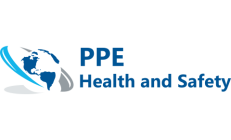With the current standards of health and hygiene continuously improving year on year, it is essential that key places of interest are adhering to the correct hygiene standards recommended by the government. Not to mention, with the prevalence of the COVID-19 virus, it is important that places with high footfall like schools continue to enforce effective hygiene standards to minimise risk of transferring harmful bacterias and microbes to one another.
Thankfully, children are less susceptible to illnesses like COVID-19 however, a recent case study dated back in January 2021 stated that children are nearly 60% more likely than adults over 60 to infect other family members when they are sick. With this in mind, this blog will discuss the top 5 ways to maintain hygiene standards in school settings which can be detailed below:
- Sanitising Stations
To start this blog on ways to to maintain hygiene standards in schools we have the implementation of sanitising stations. Hand hygiene is increasingly more prevalent in todays cleaning standards as it is the most important practice you can perform to help prevent the spread of many illnesses.
Hand sanitising stations are easy to install and highly convenient pieces of equipment provide suitable solutions for minimising bacteria transfer from kids in schools. To use the, simply press the nozzle or wave your hand under a motion sensor and a solution is squirted out onto the user’s hand. Not to mention, the stations can also be utilised to clean high touch surface areas like, door knobs, staircase handles and classroom tables. Another major benefit of hand sanitisers stations is that it encourages a hand-washing culture throughout the school which is beneficial in the long run as children are typically easier to teach hand-washing habits as opposed to older teenagers.
- Hand Wash After Breaks
I’m sure we can agree that students and school kids can be very filthy after their lunch break. Whether they are playing sports on the school’s field or or simply eating in the cafeteria, the amount of muck and mess that is brought back into the classroom is astronomical. This is why implementing a policy where students must wash their hands before entering a classroom should be enforced to maintain high levels of cleanliness and hygiene. To further assist in this hand washing policy, making sure soap dispensers are stocked appropriately as this will no doubt be the first line of defence when trying to combat the spread of many illnesses that may be prevalent in school settings.
- Mask Policies
Implementing mask policies around schools is probably the one of the most effective ways to minimise the spread of harmful bacterias in school environments – especially in a COVID-19 climate. The most effective face mask is known as the N95 respirator and is documented to protect users by filtering out 95% of airborne particles that measure 0.3 micrometres and larger. Clearly, this is greatly beneficial when reducing the risk of harmful bacterias transporting from student to student.
On the topic of face masks, in some cases it may be an idea to set up penalties for those who fail to comply with the face mask policy (apart from those who are exempt) as this could put other students in danger of falling seriously ill. Furthermore, it should be the schools duty to adequately stock hygienic equipment like masks on a regular basis to ensure infectious diseases are kept to a minimum.
- Hire a Professional Cleaning Company
Hiring a professional cleaning company can greatly reduce the risks of germs, bacteria, and viruses being present on surfaces. Simply leaving the cleanliness of the whole school premises down to local cleaners or even teachers may not be adequate enough to ensure that the harmful bacteria present is totally eliminated. As such, it could be worth investing in a professional cleaning service with the latest advancements in technology to thoroughly deep clean the school. Not to mention, peace of mind from staff members and students can be experienced knowing that the school has been cleaned by experts.
- Maintain School Appliances
What we mean by this is making sure that rust, bacteria and dirt do not affect the overall operations of your school. For example, this can be making sure that the school’s kitchen cookers are clean as hundreds of hot dinners rely on fresh and disinfected kitchen appliances in order to cook the student’s food. Similarly, making sure you conduct water tank refurbishment and cleaning procedures will mean that water is safely transported to your school whether it be for drinking or washing kids’s hands after lunch.

